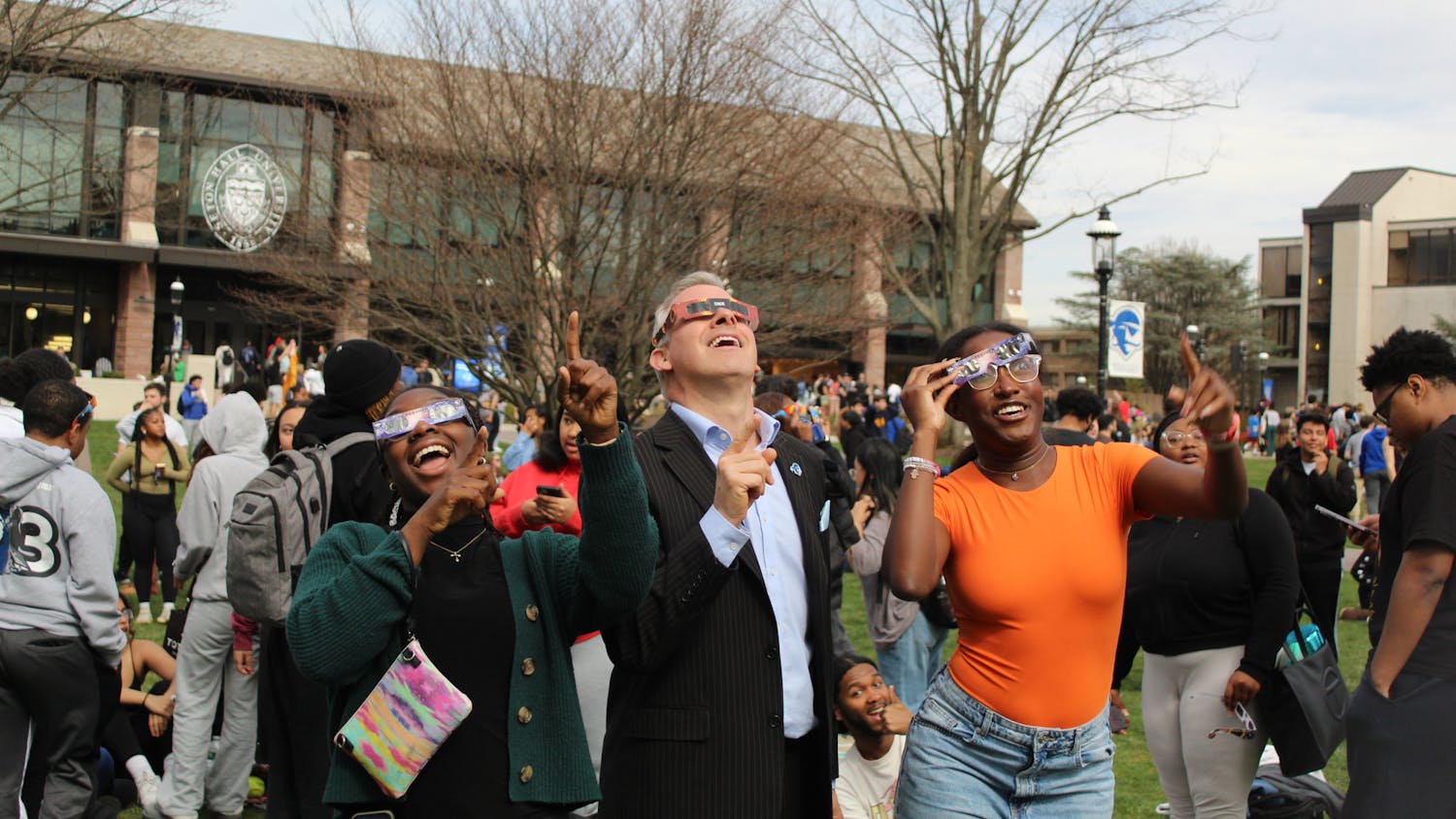[caption id="" align="alignnone" width="363"] stopcyberbullying.org[/caption]
The increase in the popularity and use of social media coincides with escalated instances of cyberbullying and threatening hate speech.
In an effort to stop this abuse, users of social media sites have petitioned both the Federal government and these social networking websites to closely censor and remove offensive posts.
Slate, an online magazine, reported that in late October more than 70 women’s and civil rights groups wrote to the U.S. Department of Education regarding the rapid increase in instances of online hate speech. These groups cite examples of sexual harassment and racial discrimination on mobile social media applications such as Yik Yak.
The letter underscores the need for the department’s Office of Civil Rights to remind colleges of their duty to investigate all harassment cases— even those online, according to Slate.com.
However, past legal precedents could prevent these government petitions from being effective.
According to the 2015 verdict in the case Elonis v. United States, the government can only enforce censorship and deletion of comments on websites, such as Facebook, if a “true threat” is evident, as in hate speech, as explained in a New York Times article.
Ivan Saperstein, media law professor at SHU, explains the definition of a true threat.
“Speech can be prohibited if it is directed at inciting or producing imminent lawless action and is likely to incite or produce such lawless action,” Saperstein said.
Saperstein adds, it is more difficult for cyberbullying to fall into this category because insulting or hurtful posts may or may not provoke “lawless action.”
A website’s Terms of Service can police both hate speech and other hurtful comments, Saperstein said. If a website documents that it does not allow “name calling,” it is allowed to remove posts that violate this rule.
However, as slate points out, these Terms of Service are not entirely protective of social media
users.
Writer Rebecca Schuman reports while Yik Yak representatives planned to look into hateful comments on their app, the company would “prefer to let users self-police” posts.
Despite having the freedom to self-police, SHU students say that not all social media users act responsibly.
Wence Morales, sophomore social work major, said that she had her own struggles with being cyberbullied in middle school.
“It is not a positive app to have,” Morales says of Yik Yak. She does not think that SHU students use the app for hateful purposes.
“Generally, I think people are nice here. Even if they feel a certain way about a person, they don’t necessarily put it out online.”
King Mott, associate political science and women and gender studies professor, said there is a way to end cyberbullying and use of hate speech.
Mott said that there is “a need for people of different political groups and identities to engage in a dialogue of understanding.”
He adds that hateful language comes about when people “express themselves from a place of uninformed arrogance.”
By engaging in an informative dialogue, Mott said that instances of hate speech and cyberbullying will greatly decrease.
Julie Trien can be reached at julie.trien@student.shu.edu.
stopcyberbullying.org[/caption]
The increase in the popularity and use of social media coincides with escalated instances of cyberbullying and threatening hate speech.
In an effort to stop this abuse, users of social media sites have petitioned both the Federal government and these social networking websites to closely censor and remove offensive posts.
Slate, an online magazine, reported that in late October more than 70 women’s and civil rights groups wrote to the U.S. Department of Education regarding the rapid increase in instances of online hate speech. These groups cite examples of sexual harassment and racial discrimination on mobile social media applications such as Yik Yak.
The letter underscores the need for the department’s Office of Civil Rights to remind colleges of their duty to investigate all harassment cases— even those online, according to Slate.com.
However, past legal precedents could prevent these government petitions from being effective.
According to the 2015 verdict in the case Elonis v. United States, the government can only enforce censorship and deletion of comments on websites, such as Facebook, if a “true threat” is evident, as in hate speech, as explained in a New York Times article.
Ivan Saperstein, media law professor at SHU, explains the definition of a true threat.
“Speech can be prohibited if it is directed at inciting or producing imminent lawless action and is likely to incite or produce such lawless action,” Saperstein said.
Saperstein adds, it is more difficult for cyberbullying to fall into this category because insulting or hurtful posts may or may not provoke “lawless action.”
A website’s Terms of Service can police both hate speech and other hurtful comments, Saperstein said. If a website documents that it does not allow “name calling,” it is allowed to remove posts that violate this rule.
However, as slate points out, these Terms of Service are not entirely protective of social media
users.
Writer Rebecca Schuman reports while Yik Yak representatives planned to look into hateful comments on their app, the company would “prefer to let users self-police” posts.
Despite having the freedom to self-police, SHU students say that not all social media users act responsibly.
Wence Morales, sophomore social work major, said that she had her own struggles with being cyberbullied in middle school.
“It is not a positive app to have,” Morales says of Yik Yak. She does not think that SHU students use the app for hateful purposes.
“Generally, I think people are nice here. Even if they feel a certain way about a person, they don’t necessarily put it out online.”
King Mott, associate political science and women and gender studies professor, said there is a way to end cyberbullying and use of hate speech.
Mott said that there is “a need for people of different political groups and identities to engage in a dialogue of understanding.”
He adds that hateful language comes about when people “express themselves from a place of uninformed arrogance.”
By engaging in an informative dialogue, Mott said that instances of hate speech and cyberbullying will greatly decrease.
Julie Trien can be reached at julie.trien@student.shu.edu.

Comments




